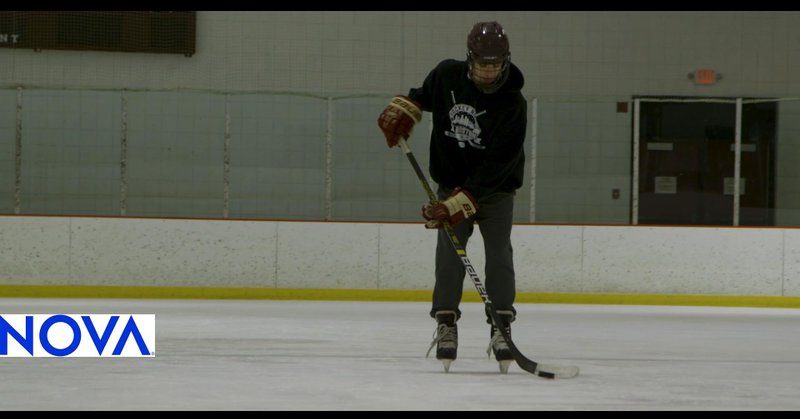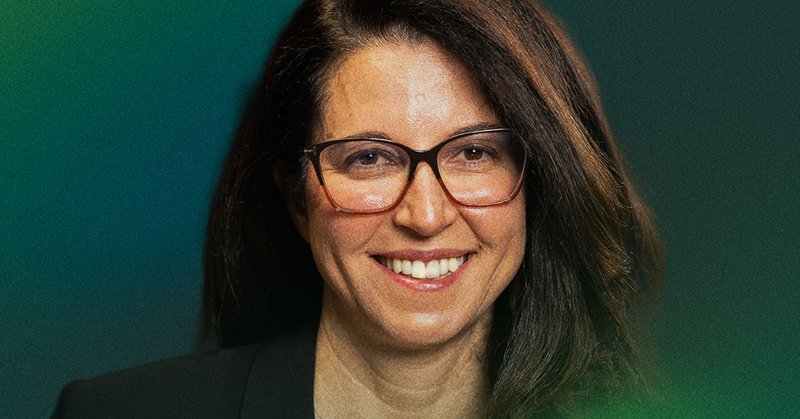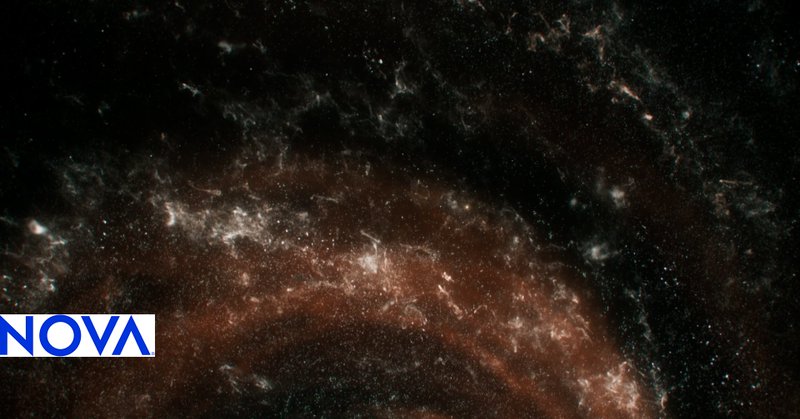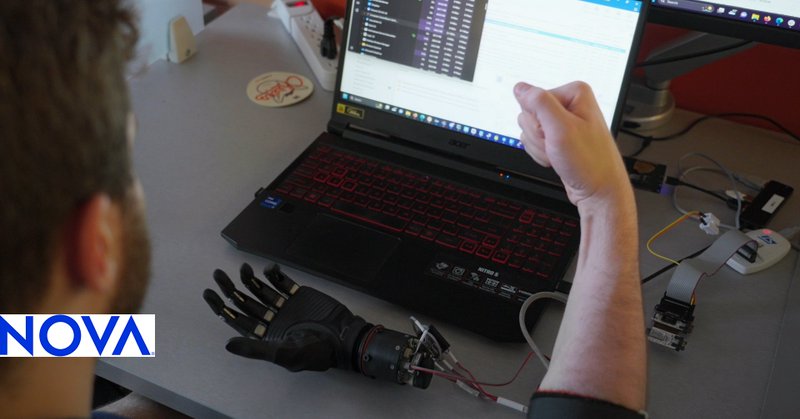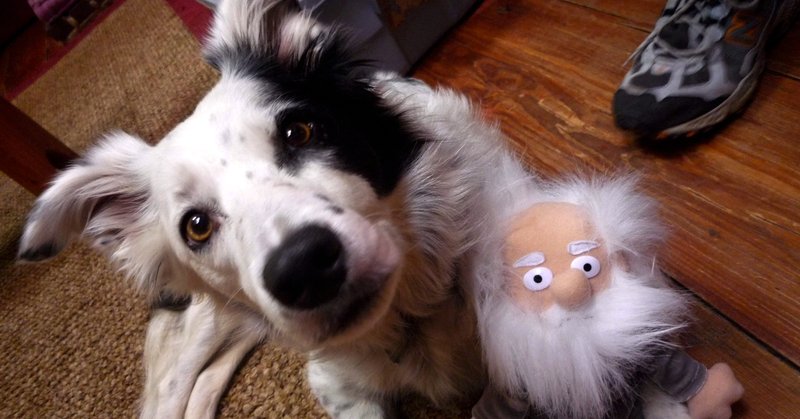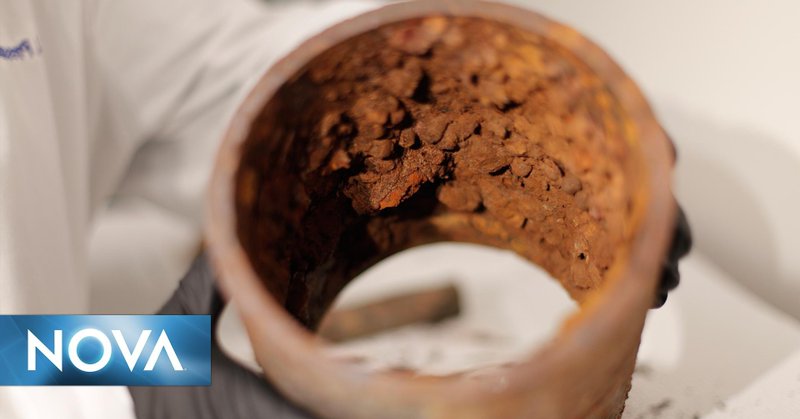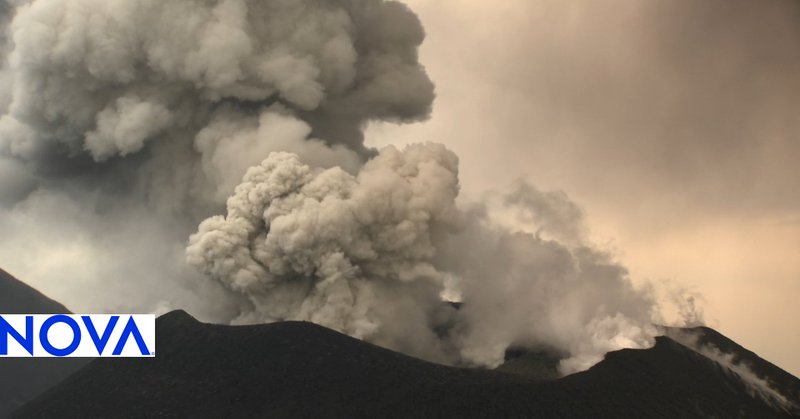
NOVA Education
@NOVAeducation
Followers
6K
Following
4K
Media
5K
Statuses
16K
NOVA Education supports STEM education and engagement nationwide through the creation of resources from @NOVApbs's broadcast and digital productions.
Boston, MA
Joined November 2010
Meet Cade, a high school hockey player, and learn how his addiction to nicotine from vaping has had physical and behavioral impacts on his life. Use this resource to stimulate thinking and questions about the consequences of addiction. https://t.co/msCYDYt2Ii
mass.pbslearningmedia.org
Meet Cade, a high school hockey player, and learn how his addiction to nicotine from vaping has had physical and behavioral impacts on his life in this digital video from NOVA. Use this resource to...
0
0
1
In this video adapted from NOVA scienceNOW, investigate the hypothetical scenario of a person falling into a hole through the center of Earth. Astrophysicist Neil deGrasse Tyson illustrates the thought experiment by taking the plunge. https://t.co/LwpiPHnZgm
mass.pbslearningmedia.org
In this video adapted from NOVA scienceNOW, investigate the hypothetical scenario of a person falling into a hole through the center of Earth. Astrophysicist Neil deGrasse Tyson illustrates the...
0
0
0
Your brain does lots of strange things, and neuroscientist Heather Berlin is here to help us understand! In this episode, we explore the mysteries of the mind: how your brain constructs reality, consciousness, and how you might hack it for a better life. https://t.co/Bp7M1rz5QB
pbs.org
Your brain does all kinds of strange things. Neuroscientist Heather Berlin explains how it works.
0
0
0
Learn how the light from distant stars and galaxies takes time to reach Earth, with these video excerpts from NOVA Universe Revealed: Big Bang. Use this resource to explore how light can be used to learn about the past. https://t.co/Jf1kqHUgjg
mass.pbslearningmedia.org
Learn how the light from distant stars and galaxies takes time to reach Earth, with these video excerpts from NOVA Universe Revealed: Big Bang. Use this resource to explore how light can be used to...
0
0
0
Explore how web browser cookies collect data and learn how to avoid them with these video excerpts from NOVA: Secrets in Your Data. Use this resource to provide students with opportunities to recognize how to control what data they want to share online. https://t.co/BsX3lp5lR3
mass.pbslearningmedia.org
Explore how web browser cookies collect data and learn how to avoid them with these video excerpts from NOVA: Secrets in Your Data. Use this resource to provide students with opportunities to...
0
0
0
Double Dutch is a jump rope game that requires two people spinning ropes in opposite directions and at least one person to jump. Engineers Tahira Reid Smith and Sky Leilani are building a machine that would allow one person to play whenever they wanted. https://t.co/EjhCkFiz0Y
mass.pbslearningmedia.org
Learn about efforts to design and develop a machine that enables a single person to play Double Dutch, a game that typically requires multiple players, with these videos from NOVA Building Stuff:...
0
0
1
Billions of years ago, Mars’ Jezero Crater held a lake fed by rivers that could have carried minerals and maybe even organic matter. On Earth, places like that are teeming with microbial life. https://t.co/2KJSOzZpIu
pbs.org
NASA’s Perseverance rover may have found the clearest signs of ancient life on Mars yet.
0
0
0
Learn how ancient human tracks discovered at White Sands National Park support Native American connections to the land and their ancestors, and how the tracks help scientists learn about life during the Ice Age, in these videos from NOVA Ice Age Footprints. https://t.co/WAs1jYWzgg
mass.pbslearningmedia.org
Learn how ancient human tracks discovered at White Sands National Park support Native American connections to the land and their ancestors, and how the tracks help scientists learn about life during...
0
0
0
Watch scientists uncover what might be the first dinosaur fossil ever found from the day the dinosaurs died! https://t.co/mCp82AnTW0
pbs.org
This might be the first time in 66 million years that this leg has seen the light of day.
0
0
2
Learn how increasing ocean temperatures and the fishing industry threaten the survival of North Atlantic right whales with this video excerpt from NOVA: Saving the Right Whale. https://t.co/2dnzSbwYbv
mass.pbslearningmedia.org
Learn how increasing ocean temperatures and the fishing industry threaten the survival of North Atlantic right whales with this video excerpt from NOVA: Saving the Right Whale. Use this resource to...
0
0
0
Learn about advances in prosthetic arms using artificial intelligence with this video excerpt from NOVA: A.I. Revolution. Use this resource to provide students with opportunities to recognize how training data affects the functionality of A.I. https://t.co/sKFOyWWEb7
mass.pbslearningmedia.org
Learn about advances in prosthetic arms using artificial intelligence with this video excerpt from NOVA: A.I. Revolution. Use this resource to provide students with opportunities to recognize how...
0
0
0
Learn how farmers can use existing ecosystem relationships to build resilience to climate change impacts with this video from Sea Change: Survival in the Gulf of Maine, a NOVA special presentation. https://t.co/iNwfFsloti
mass.pbslearningmedia.org
Learn how farmers can use existing ecosystem relationships to build resilience to climate change impacts with this video from Sea Change: Survival in the Gulf of Maine, a NOVA special presentation....
0
0
0
Examine the behaviors and decisions that influence how money is spent and how they can increase or stall progress toward financial well-being, in these videos adapted from the NOVA Financial Lab. https://t.co/qHQkTZ4kgz
mass.pbslearningmedia.org
Examine the behaviors and decisions that influence how money is spent and how they can increase or stall progress toward financial well-being, in these videos adapted from the NOVA Financial Lab. Use...
0
0
1
Sometimes the world seems suspiciously perfect, fine-tuned for life. This impossible coincidence has led some physicists to think there could be many—maybe infinite—universes. Find out why in this episode of What the Physics?! https://t.co/8idTs6EkdZ
pbs.org
A multiverse could explain why our universe is fine-tuned for life.
0
2
1
Chaser was known to some as “the world’s smartest dog". The late psychologist, John Pilley, trained Chaser to tend a “herd” made up of more than 1,000 toys and remember the name of each item in the pile. In 2009, NOVA visited Chaser to test her vocabulary. https://t.co/wFkckGx3nd
pbs.org
Remembering Chaser, the border collie who learned more than 1,000 words.
0
0
1
Sea cucumbers are marine animals that can undergo a form of autotomy called evisceration—a sea cucumber can shoot out its internal organs! https://t.co/xvO5kRLR9k
mass.pbslearningmedia.org
Learn how sea cucumbers eject and regenerate parts of their internal organs, in this episode of Gross Science from NOVA. Sea cucumbers are marine animals that can undergo a form of autotomy called...
0
0
0
Learn about the chemistry involved in water pipes and why a failure to protect against corrosion in the water system of Flint, Michigan, tainted city water with lead and a dangerous strain of bacteria, in this media gallery from NOVA: Poisoned Water. https://t.co/VJI3FhTLGA
mass.pbslearningmedia.org
Learn about the chemistry involved in water pipes and why a failure to protect against corrosion in the water system of Flint, Michigan, tainted city water with lead and a dangerous strain of...
0
0
0
Agriculture can thrive in the desert. The Tohono O’odham people have used Ak Chin farming, a form of dry farming, to grow crops for millenia. In this short documentary, cultural experts demonstrate these practices as well as implementations for future. https://t.co/hVuK4uqBF3
pbs.org
Ak-chin farming makes desert agriculture possible, and now, those practices help communities today.
0
1
1
Explore how plate tectonics affects hot spot volcanoes with this video from NOVA Solar System: Volcano Worlds. Use this resource to provide students with opportunities to model the movement of tectonic plates. https://t.co/rtDgqHfMMp
mass.pbslearningmedia.org
Explore how plate tectonics affects hot spot volcanoes with this video from NOVA Solar System: Volcano Worlds. Use this resource to provide students with opportunities to model how the movement of...
0
0
0
Learn how technology can restore vision to someone who is blind with this video from NOVA Building Stuff: Boost It. Use this resource to provide students with opportunities to identify the engineering criteria of an artificial visual system. https://t.co/ylsBW6P2JM
mass.pbslearningmedia.org
Learn how technology can restore vision to someone who is blind with this video from NOVA Building Stuff: Boost It. Use this resource to provide students with opportunities to identify the engineer...
1
0
2

